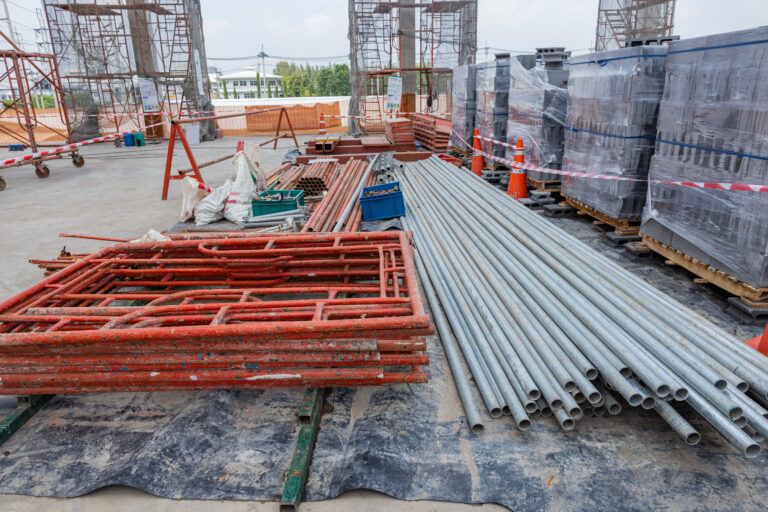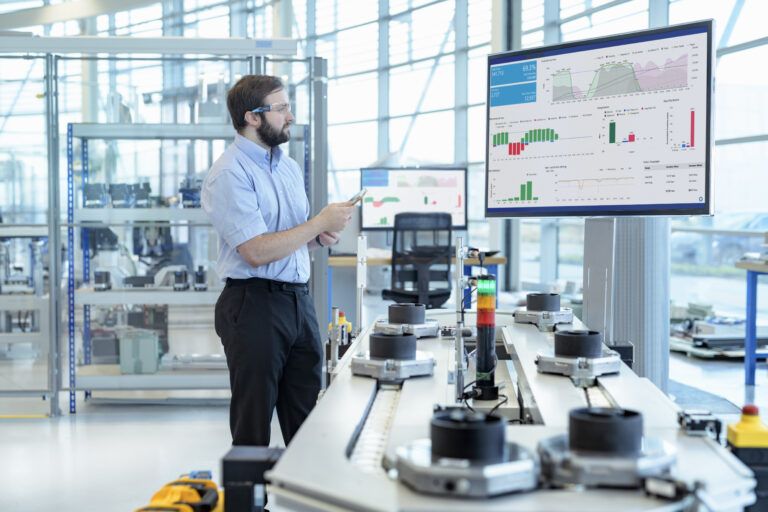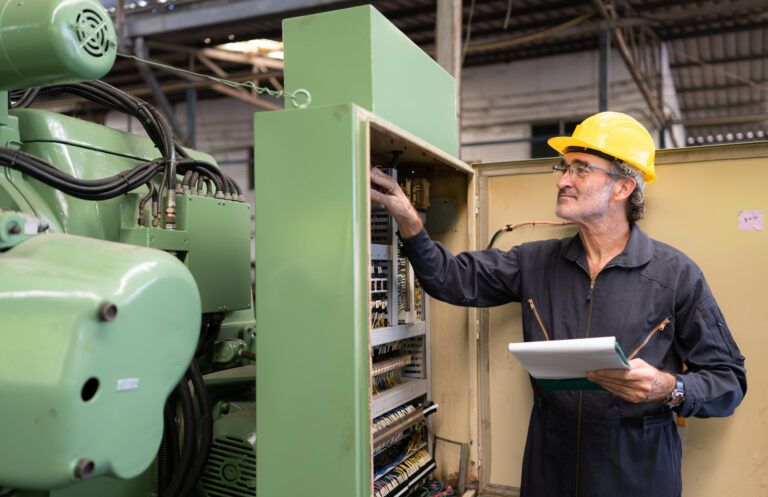In the ever-evolving world of electrical design, staying ahead of the curve is crucial for professionals looking to thrive. From the advent of cutting-edge technology to the growing emphasis on sustainability, the job market for electrical designers is witnessing a dynamic shift. This article explores the latest trends shaping this field, highlighting the surge in demand for skills in advanced CAD software, an understanding of the latest electrical codes, and expertise in designing renewable energy systems.
As industries ranging from construction to renewable energy seek skilled electrical designers, understanding these trends is key. Whether it’s the rise of smart home technology or the push towards green energy projects, the landscape is ripe with opportunities for those ready to adapt and innovate. Join us as we explore the pivotal changes in the job market for electrical designers, shedding light on the skills in high demand and the industries leading the charge in hiring these indispensable professionals.
How has the Job Market for Electrical Designers Changed?
The job market for electrical designers has undergone significant transformations, largely propelled by technological advancements and evolving industry demands. Traditionally, the focus was on manual drafting and the design of basic electrical systems. However, the introduction of sophisticated software and design tools has dramatically shifted the landscape, necessitating a blend of technical prowess and software proficiency.
This evolution demands not only a solid grasp of electrical design but also an understanding of network and communication technologies. In response, educational and training programs have started to place a greater emphasis on software skills, sustainability, and systems integration. Employers now seek candidates who are not just technically skilled but also adaptable and forward-thinking, capable of contributing to interdisciplinary projects and innovative solutions.
The job market for electrical designers is moving towards a more technologically advanced and integrated approach, mirroring broader shifts in the construction, manufacturing, and energy sectors. To remain competitive and effective, electrical designers must keep pace with new technologies, industry standards, and regulatory changes.
Shift Towards Green Energy Projects
The global movement towards sustainable and green energy solutions has significantly influenced the job market for electrical designers. This paradigm shift is driven by a collective commitment to environmental sustainability and the urgent need to reduce carbon emissions. As a result, electrical designers are increasingly involved in projects that harness renewable energy sources, such as solar and wind power.
This trend not only broadens the scope of their work but also demands a deep understanding of renewable technologies, energy storage solutions, and the complexities of integrating these systems into the existing electrical infrastructure. The focus on sustainability is fostering innovation, leading to the development of more efficient energy systems and practices. Consequently, electrical designers with expertise in green energy projects are becoming highly sought after, reflecting a wider societal push towards environmental stewardship and energy self-sufficiency.
Rise in Smart Home and IoT Devices
Concurrently, the job market for electrical designers is being reshaped by the rapid expansion of smart home technology and the Internet of Things (IoT). This technological revolution is redefining the functionality of residential and commercial spaces, making them more efficient, secure, and attuned to the needs of users. Electrical designers are crucial to this transformation, tasked with seamlessly integrating smart devices and IoT technologies into comprehensive electrical systems.
Their work encompasses a wide range of applications, from smart lighting and HVAC systems to security cameras and energy management systems that offer remote control capabilities. The rise of IoT devices has elevated the importance of connectivity and network integration in electrical design, requiring designers to possess skills in network technologies and digital communications. As buildings become increasingly interconnected, the role of electrical designers is evolving to ensure that these technologies operate cohesively, enhancing both the functionality and comfort of modern living and working spaces.
The growing demand for professionals skilled in smart home and IoT systems underscores the critical need for adaptability and ongoing learning in the face of rapid technological advancements.
What Skills are in High Demand?
In the rapidly evolving field of electrical design, employers are on the lookout for professionals equipped with a specific set of skills. These competencies enable electrical designers to not only meet the current demands of the job market but also contribute to the advancement of environmental sustainability and the integration of smart technology.
Mastery of Advanced CAD Software
Proficiency in advanced CAD software is indispensable for electrical designers aiming to excel in their field. Tools such as AutoCAD, Revit, and SolidWorks stand at the forefront of electrical design, allowing for the creation of detailed, accurate, and sophisticated designs. These software platforms are pivotal in modelling complex electrical systems and infrastructure, providing designers with the capability to visualise, simulate, and refine their projects with unparalleled precision.
Understanding of the Latest Electrical Codes
A comprehensive understanding of the latest electrical codes is critical for ensuring designs are both safe and compliant. Knowledge of the National Electrical Code (NEC), International Electrotechnical Commission (IEC) standards, and local codes is essential, as these regulations dictate the safety, quality, and legality of electrical design work. Adherence to these codes is crucial in ensuring public safety and protecting property.
Renewable Energy System Design
Expertise in renewable energy system design has become a highly valued skill in the job market. Proficiency in designing systems that utilise solar, wind and hydroelectric power is in demand as the industry shifts towards more sustainable energy solutions. This expertise not only supports global efforts to mitigate climate change but also promotes energy independence, aligning with the growing societal push for environmental sustainability.
Industries Hiring Electrical Designers
Electrical designers find opportunities across a diverse array of sectors, each valuing their unique skill set and contributions. These industries prize electrical designers for their ability to navigate the complexities of integrating advanced electrical systems, driving forward technological innovation and efficiency. In essence, electrical designers play a pivotal role in shaping the future of multiple industries, from enhancing the sustainability of our energy sources to advancing the capabilities of smart technology and transportation. Their expertise in advanced CAD software, understanding of electrical codes, and proficiency in renewable energy system design are highly sought after, marking them as essential contributors to technological progress and environmental stewardship.
Construction and Infrastructure
The construction and infrastructure sector extensively engages electrical designers to devise and implement intricate electrical systems for a broad spectrum of projects. These experts are instrumental in ensuring that both newly constructed and refurbished infrastructures uphold the utmost standards of safety, efficiency, and regulatory compliance.
Commercial and Residential Buildings
Within commercial and residential buildings, electrical designers are pivotal in engineering systems that deliver dependable power, lighting, and communication services. Their work is essential in making these buildings not only functional and safe for occupants but also aligned with energy efficiency and sustainability objectives.
Renewable Energy Sector
The renewable energy sector stands out as a key field employing electrical designers, who are at the forefront of designing systems for solar power companies and wind farms. Their contributions are crucial to driving the shift toward clean energy adoption and promoting innovation in green technologies.
Electronics and Automotive Manufacturing
In the electronics and automotive manufacturing industries, there is a growing demand for electrical designers to innovate advanced electrical systems, particularly for Electric Vehicles (EVs) and battery management systems. These professionals are pushing the envelope in electric mobility and energy storage solutions, marking significant advancements in automotive technologies.
Geographical Impact on Job Opportunities
The geographical location plays a pivotal role in shaping job opportunities for electrical designers. The geographic concentration of specific industries and projects means electrical designers in these locales may encounter a greater volume of job openings and potentially higher compensation, reflecting the high demand for their specialised skills and knowledge.
Tech Hubs and Urban Areas
Tech hubs and urban areas, such as Silicon Valley, New York, and Boston, stand out as vibrant centres for electrical designers. These regions offer a plethora of opportunities, driven by the dense presence of technology firms and innovative startups that require sophisticated electrical design expertise for cutting-edge projects.
Regions with Renewable Energy Projects
California, Texas, and Florida are prominent regions with renewable energy projects, positioning them as crucial areas for electrical designers who specialise in sustainable technologies. In these states, demand is surging for professionals skilled in designing and implementing solar, wind, and hydroelectric power systems, mirroring the industry’s shift towards embracing renewable energy solutions.
Future Job Market Trends
The job market for electrical designers is poised for significant growth, driven by a series of emerging trends. As the industry evolves, electrical designers with specialised expertise in renewable energy, smart technologies, and sustainability will find themselves at the heart of new opportunities, equipped to address the challenges of a dynamically changing landscape.
Growth in the EV Market
The EV market is witnessing unprecedented growth, catalysing a surge in the need for electrical designers with expertise in charging station design and grid integration. This specialisation is crucial for supporting the expanding fleet of electric vehicles, necessitating innovative infrastructure solutions.
Charging Station Design and Grid Integration
Charging station design and grid integration have emerged as key areas of focus within the electrical design field. Professionals are tasked with devising efficient, widely accessible charging stations that can be smoothly incorporated into the existing electrical grids, facilitating the EV revolution.
Sustainable Building Design Focus
A pronounced focus on sustainable building design underscores the industry’s shift towards constructions that are both eco-friendly and energy-efficient. This shift demands electrical designers to pioneer in the application of sustainable technologies and practices in building design.
LEED Certification and Energy Efficiency
LEED certification stands as a hallmark of sustainable building, emphasising the critical role of energy efficiency. Electrical designers are at the forefront of this movement, essential in crafting buildings that not only meet LEED standards but also promote significant energy conservation and environmental stewardship.
Staying Competitive in the Job Market
To stay ahead in the rapidly evolving job market, electrical designers must prioritise continuous learning and skill advancement. These initiatives not only showcase a dedication to professional growth but also align one’s skills with the latest industry trends and standards, making them highly competitive in a dynamic job environment.
Pursuing Further Education
Pursuing further education is a critical step for electrical designers looking to advance in their careers. Obtaining degrees in electrical engineering or renewable energy equips professionals with the knowledge and skills to navigate the complexities of modern electrical design and sustainability practices.
Gaining Certifications
Gaining certifications serves as a powerful means to enhance one’s professional standing. Certifications such as PMP for project management and LEED for green buildings not only demonstrate a commitment to excellence and continuous learning but also align an individual’s expertise with current industry demands and standards.
Navigating a Shifting Landscape
The electrical design job market is evolving quickly, driven by sustainability, smart technologies, and industry-wide digital transformation. From renewable energy systems and smart infrastructure to electric vehicle (EV) charging networks and green buildings, the demand for skilled electrical designers has never been greater. Staying competitive means continuously updating skills and aligning with emerging technologies and standards.
At Vista Projects, we help organisations realise complex electrical systems through innovative design, engineering, and integration expertise. With a focus on quality and sustainability, we support our clients in delivering efficient, future-ready infrastructure.
Looking to power your career or your next project? Partner with Vista Projects and shape the future of electrical design with confidence.









